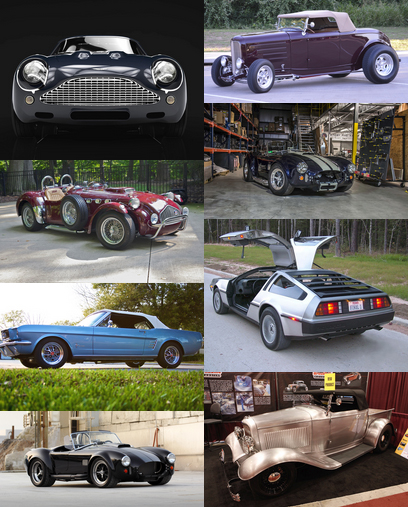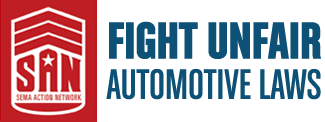This webpage provides an overview of the new federal replica car law. It will be periodically updated as the SEMA Action Network (SAN) works with federal regulators to implement the program rules.
Background:
On Dec. 4, 2015, lawmakers in Washington, DC enacted legislation allowing low volume manufacturers of replica cars to sell turn-key cars to their customers. The historic law expands customer options. Enthusiasts can still build custom cars and construct kit cars on their own. However, they will also have the option of buying a replica just like any other new car and driving it off the lot (or from the factory). The completed replica vehicles will meet current model year clean air standards. On Jan. 15, 2021, NHTSA issued a regulation allowing companies to register with the agency and begin selling fully-functional cars. Replica car companies are now gearing-up their operations.
START YOUR ENGINES: Re-created Dream Cars Will Finally Roar to Life After Long-Awaited Approval!
Definitions:
- Low volume manufacturer: a motor vehicle manufacturer whose annual worldwide production (including by a parent or subsidiary of the manufacturer) is not more than 5,000 motor vehicles each year. The company can sell up to 325 replica vehicles in the U.S. each year, with no limit on the number of incomplete kit cars that can be sold.
- A replica vehicle is a vehicle that resembles the body of another motor vehicle produced at least 25 years ago (’32 Roadster, ’65 Cobra, etc.).

Breakthrough:
After nearly six decades, the law establishes a separate way to oversee low volume manufacturers who, until now, were subject to a one-size-fits-all regulatory framework intended for companies that mass-produce millions of cars. Lawmakers understood that a car produced in 1931 is different than a 2020 vehicle, and therefore adopted the kit car approach that treats the car as automobile equipment. The law also addresses supply/demand realities – a limited supply of vintage vehicles and a much larger enthusiast base. The law will spur job creation and help preserve America’s automotive heritage in the United States and abroad.
Status:
It took over five years but the National Highway Traffic Safety Administration (NHTSA), U.S. Environmental Protection Agency (EPA), and California Air Resources Board (CARB) have completed rules governing the replica car program. Companies are now gearing-up to produce the vehicles and install EPA or CARB certified engine packages installed in the cars. To follow is the current status:
- NHTSA: SEMA sued NHTSA in October 2019 for failure to issue a rulemaking within one year. The agency responded to a court deadline by issuing a proposed rule in January 2020. NHTSA issued the final rule on Jan. 15, 2021 (which becomes official when published in the Federal Register).
- EPA: As required by the law, replica vehicles will meet current model year clean air standards. The EPA issued a guidance document in October 2019 outlining how manufacturers can register with the agency and produce engine packages that will be deemed compliant. The EPA is ready to begin accepting manufacturer registrations.
- CARB: CARB issued a rulemaking in July 2019 which outlines procedures for receiving an Executive Order recognizing the engine packages as compliant with current model year clean air standards. The rulemaking also establishes procedures for companies selling replica vehicles in California. CARB is ready to begin accepting manufacturer registrations.
More information:
- Click here for a summary of the law
- Click here for the actual text of the law
- Click here for background information
- Click here for 2015 press release
- Click here for 2021 press release
If you have questions, contact Stuart Gosswein at stuartg@sema.org.
